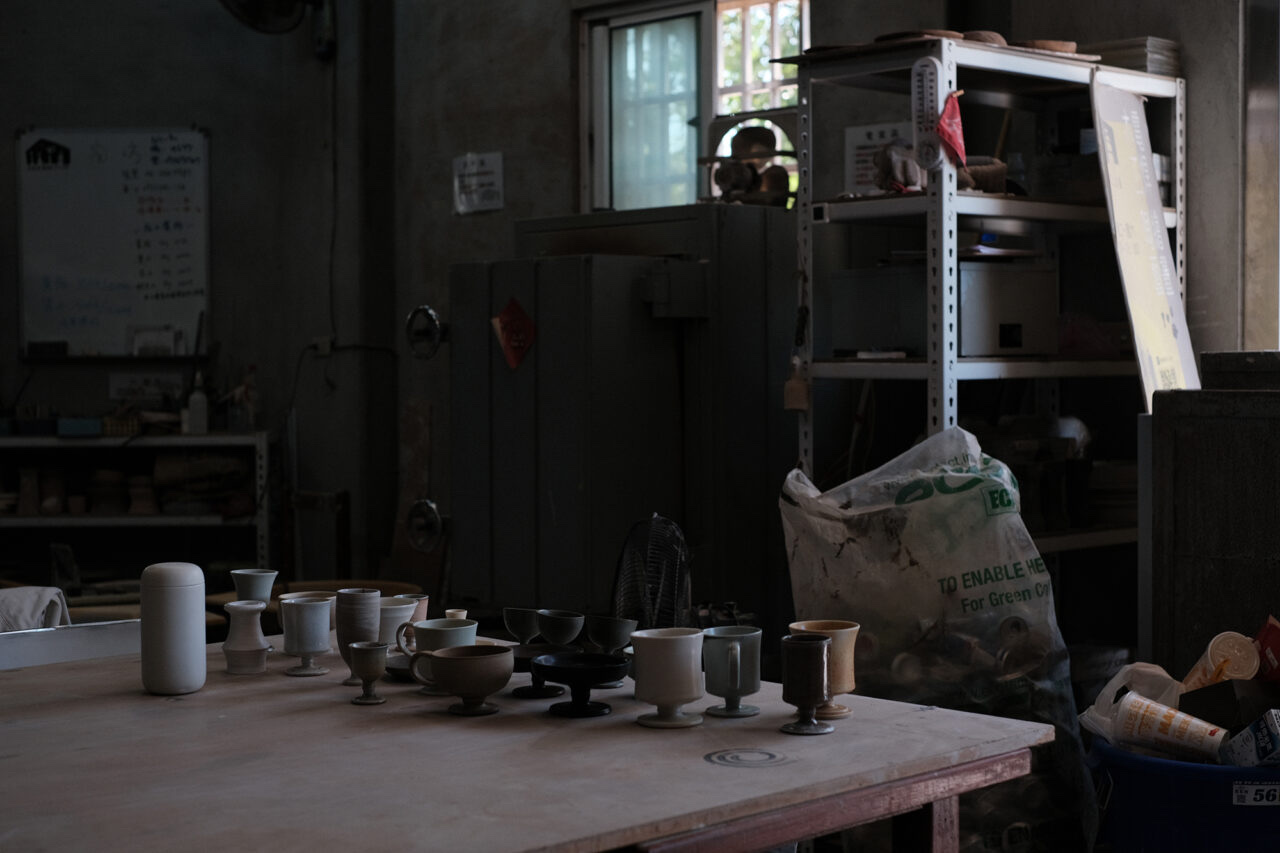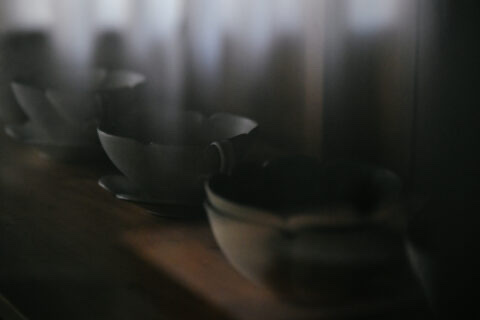
「這三年來你過得好嗎?在這三年,可以跟我分享一件讓自己覺得驕傲、稱讚自己的事嗎?只要一件就好了。」多久沒有稱讚自己?我們多久沒法聚會相見。
陶土品牌「擇日」的工作室在台南安平,像船塢般的工作室以一種合作社的方式營運,一位前輩邀請幾位陶藝師進駐使用、整理工具,當值教學,撥出幾件個人作品在店面銷售,這種模式自助互利。
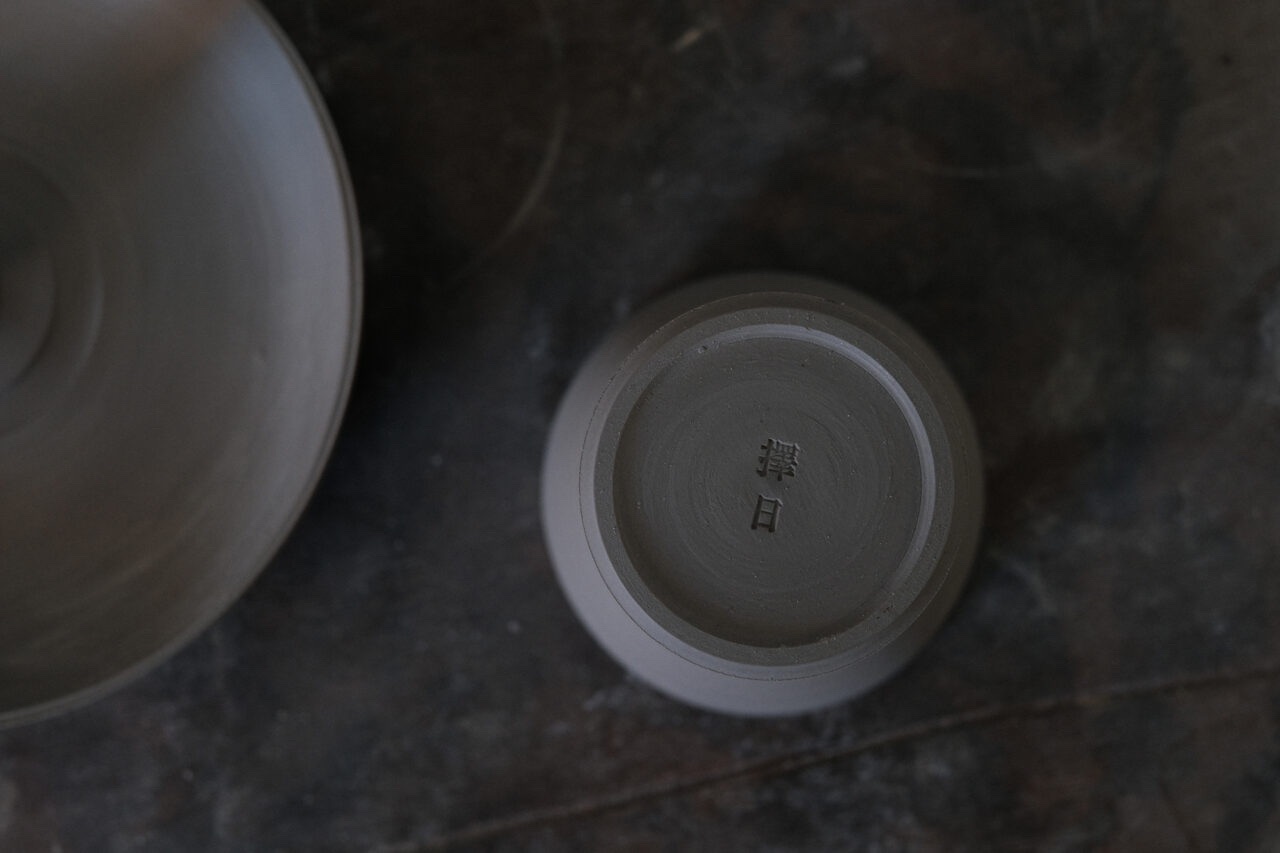
「這三年來你過得好嗎?在這三年,可以跟我分享一件讓自己覺得驕傲、稱讚自己的事嗎?只要一件就好了。」多久沒有稱讚自己?我們多久沒法聚會相見。
陶土品牌「擇日」的工作室在台南安平,像船塢般的工作室以一種合作社的方式營運,一位前輩邀請幾位陶藝師進駐使用、整理工具,當值教學,撥出幾件個人作品在店面銷售,這種模式自助互利。
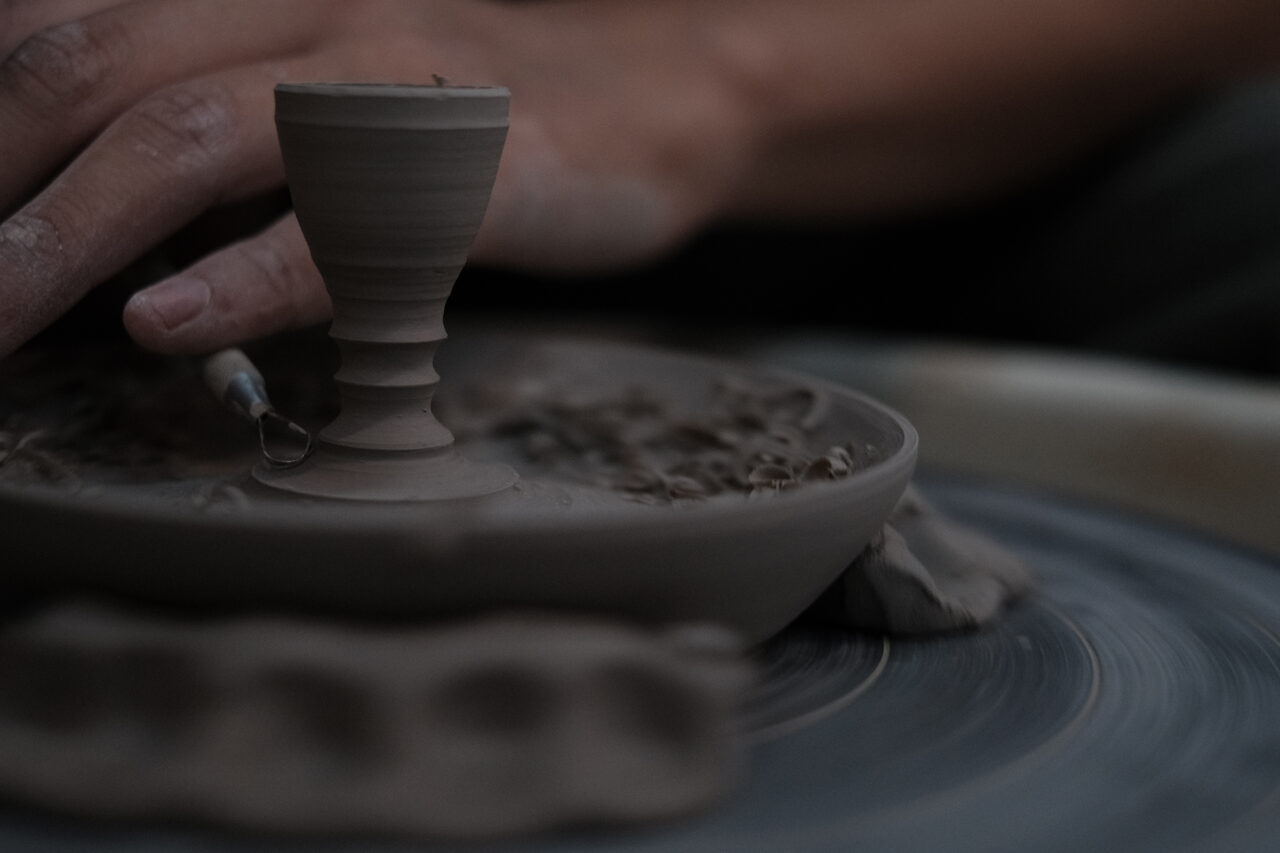
「擇日」的陶藝師昱晴 : 「能夠做到自己喜歡的事,並順利地生活及維持,這算是嗎?」我們好不習慣稱讚自己呀!將想像化成實踐不就是成就嗎?「其實我覺得這三年,我們還能活著,已經值得大大力拍掌。」我說。
一邊在咖啡廳工作一邊在工作室製陶,在空餘時間從市區騎車到運河邊的陶藝工作室,說「空餘」也可圈可點,因為留在工作室捏土的時間比在咖啡廳沖咖啡的時間還要多,真不知道哪才是空餘。現代人常常先想溫飽,才想興趣,但是如何運用時間是沒法成正比地量度幸福、快樂或是金錢,一切都是選擇。不謀而合,我很喜歡選擇,而「擇日」也是選擇生活的方式。
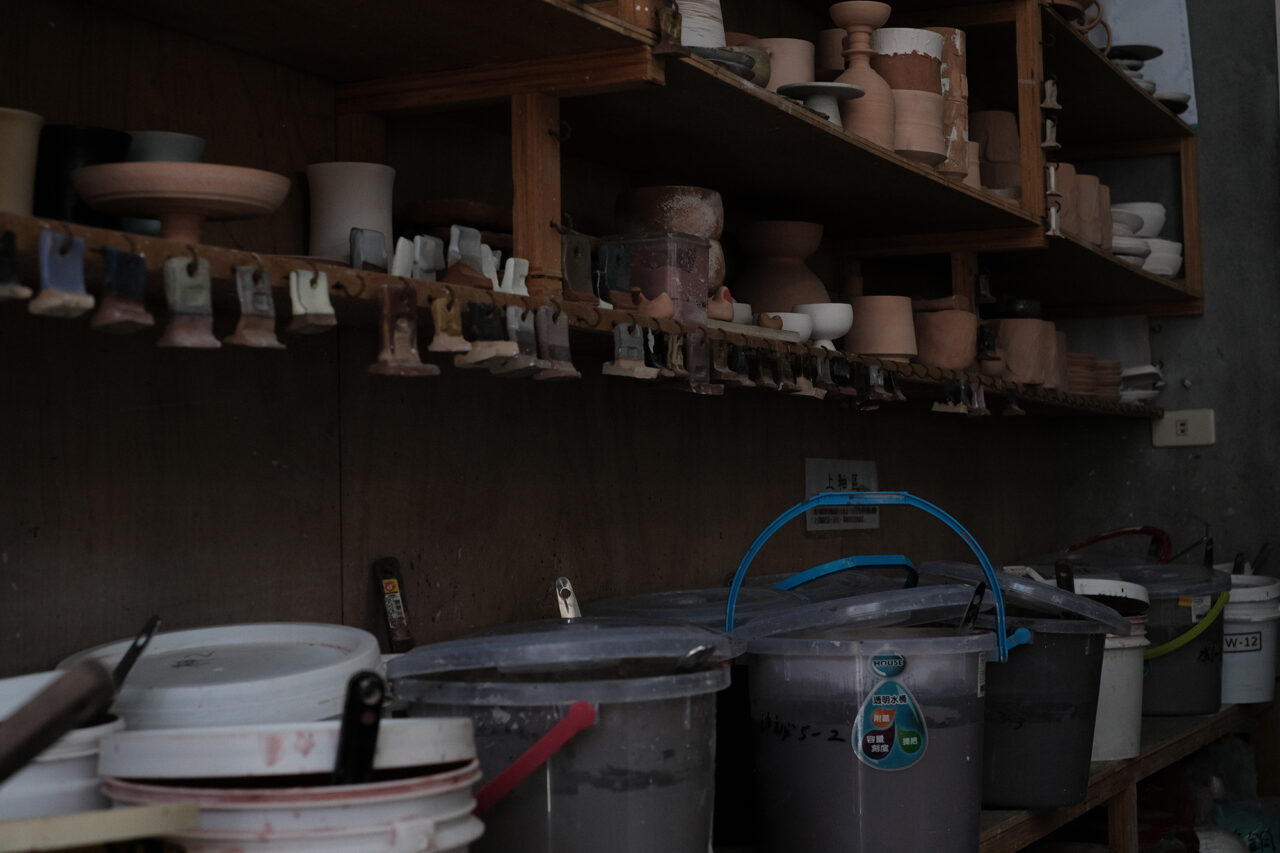
昱晴說她不會表達為何鍾愛高腳作品,但在陶土作品中,高腳作品比起一般的馬克杯造型肯定更容易失敗的,因為「高腳」是指杯身下只有細細窄窄的支撐配上偏平的底座。在捏土風乾成形時,陶土還是充滿水份,如果比例不夠高,「杯身」的重量會比支撐的「腳」更重,過了一天,風乾後就會成為歪腰的高腳杯。陶土進窯高溫燒製共兩次,每次進窯水份又一次蒸發,沒法估算收縮水份的情況,偶然又會跟歪歪的高腳杯、盤相見。
製作高腳杯、盤還有另一個挑戰,就是「修坯」,因為杯身或杯座會阻擋視線 ,所以細仔地整理、塑形時,昱晴的頭幾乎是90度側彎的,那姿勢並不容易,一天下來腰酸背痛。我也會做陶,也知道製作高腳杯的難度,但我好奇為甚麼有些人會想挑戰難度?昱晴不會用言語表達為何,也誠實又可靠地笑笑說沒想過這個問題,大概就是想到做陶,就想做做看。
現在世界好像一切如常,像疫情之前,人們都可以隨意出外旅遊,到訪想去的地方、學習新的事物,都回到三年前容易了,但對事物的興趣是培養出來的,用文字來說明不也是很難嗎?能夠做自己喜歡的事,確實珍貴,而有很大的部份的珍貴不是因為「實現」,而是「發現」,發現了興趣、發現了可以這樣完成一隻高腳杯、發現即使不會用言語表達喜愛之處,也可以樂在其中,那就值得珍而重之,那怕作品出來歪歪斜斜。
回頭看這三年來,原來已經走了這麼一段路,製作了不少高腳杯,而昱晴告訴我,她最近開始了關於「折痕」的系列,刻意在杯身其中一面捏出折痕,跟完美地修飾的高腳杯,或有不同,但相同的是「每個折痕好像都是我們經歷的事件,在我們身上產生的痕跡,有開心的有難過的,有深刻的有留白的,同時讓我們變成獨一無二的樣子。」那是發現一些甚麼,過後的我。
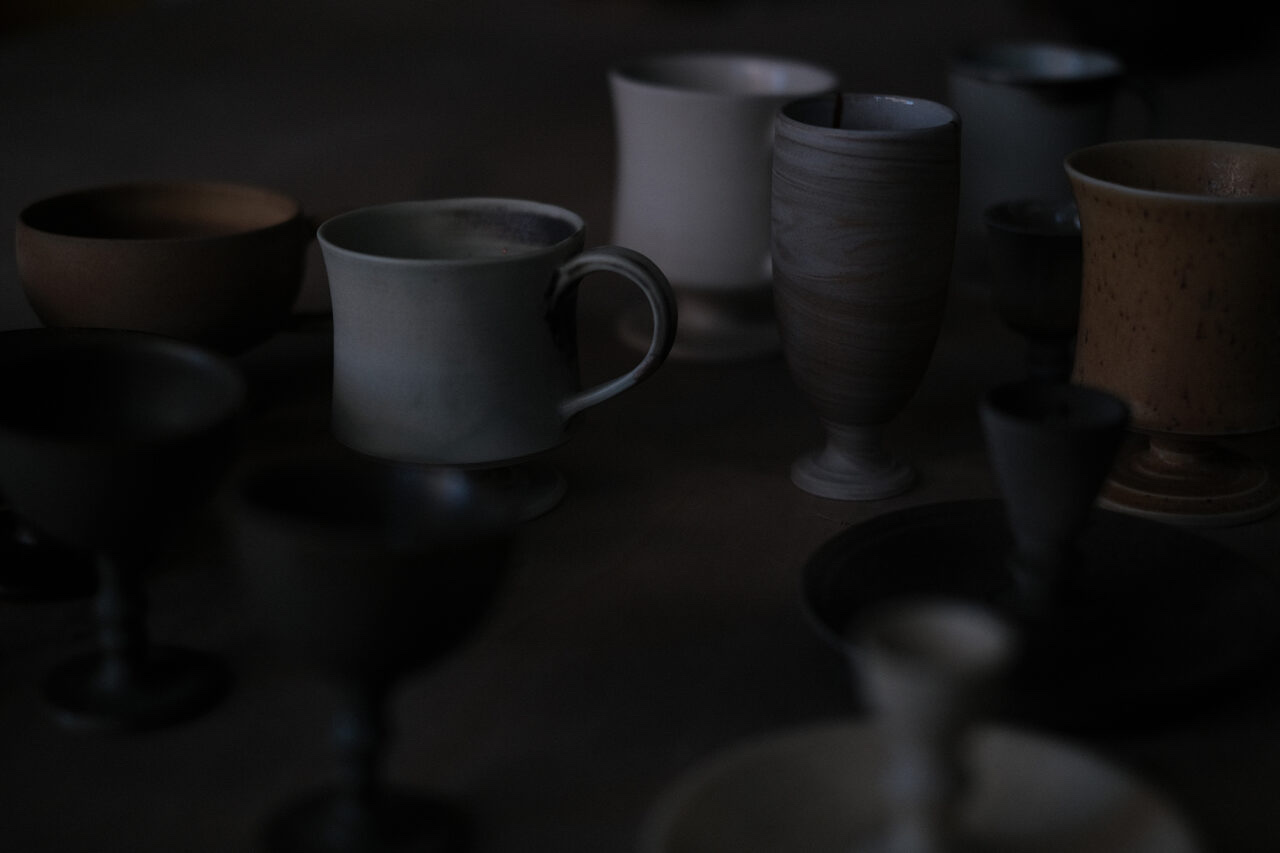
“How have you been these past three years? Can you tell me one thing that happened that made you feel proud of yourself? Just one thing.”
When was the last time you gave yourself praise? And since when did we last get together?
Pottery studio, Zerih, resides in Anping, Tainan. The dock-like studio runs like a co-op; with an experienced potter being the lead, inviting several other potters to stay in residence. Together they create, teach, and also sell their work in the studio. This mode of operation is not only helpful to individual artists, but in a way mutually beneficial to everyone involved.
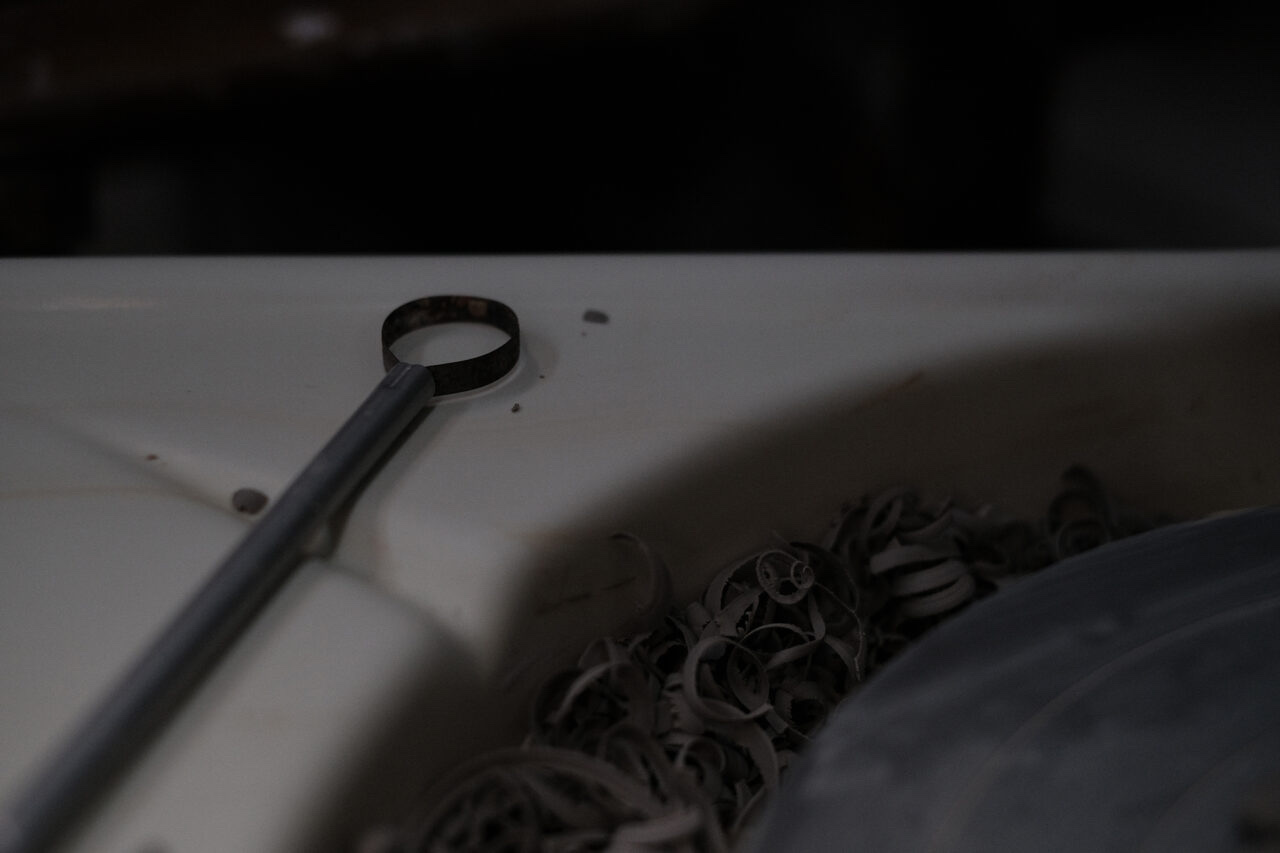
Yu-Ching is a potter from Zerih. “Do you think I am actually doing something I like while at the same time being able to earn a living?” Yu-Ching seems uncomfortable taking credit for herself, though the fact that she is able to make her dream come true is already quite an achievement. “Actually I think we all deserve a big round of applause for simply surviving the past three years,” I said.
Working in a coffee shop, Yu-Ching spends her spare time biking from the city center to the studio by the canal where she works on her creations. Yet speaking of, it might not be totally accurate to say that she spends her “spare time” on pottery. She actually spends way more time in the studio making pottery than working in the cafe making coffee. Modern people often consider making a living a more important goal in life than following your passion. But the fact is, the time you spend on something is not directly proportional to the blessings, happiness, or even money you get in return. It’s all a matter of choice. Coincidentally, I like making choices, and everyone from Zerih proves to me that there are indeed many ways of living your life.
Though Yu-Ching has no clue how to explain her love for high footed pottery work, she can still affirm that it takes way more effort to create them than making simple, regular mugs. It’s difficult to get it right when it comes to using thin, narrow feet to support a comparatively larger main body with a flat bottom. In addition, the different moisture contents of the clay during kneading lead to varying drying results. Oftentimes there are pieces that come with a heavy body and light feet, and vice versa. Not to mention the two firings that the pottery needs to go through inside the kiln, with their water content potentially reducing even further afterward. With the impossibility to tell what the final products will be like after all the shrinking and drying, it becomes a pleasant surprise to occasionally see some crooked high-footed cups and plates.
There is another challenge in making high-footed cups and plates which is: fettling. Given the shape and positioning of the body and stem, Yu-Ching needs to constantly tilt her head to almost 90 degrees when fettling, and it can be extremely tiring after a long day of work. Being a pottery maker myself, I know the difficulty of creating high-footed cups and am curious why one would choose to take on such challenges. Yu-Ching couldn’t seem to find the right word to explain herself; so instead, she showed an honest and reliable smile and told me that such a question has never come to her mind. She just simply wants to do pottery.
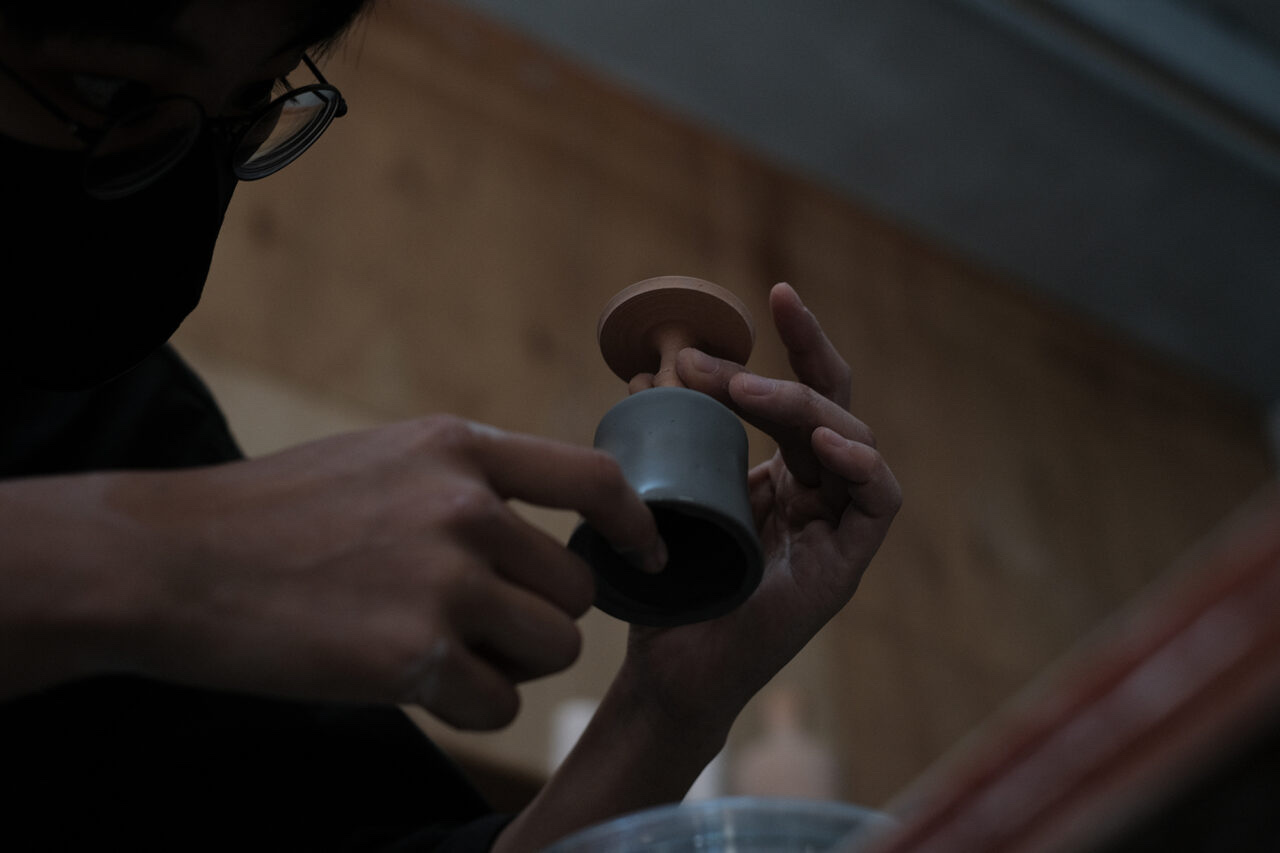
Now that the world seems to be back to normal. People can once again travel freely, visit places on their wishlist, and learn new things. Life is easy; just like the good old days before the pandemic hit. But still, it’s always difficult to describe your passion in words; because passion lies within your heart. It is indeed a blessing to be able to do what you like; but while this blessing is not totally being able to do what you like, it does present opportunities to discover. To discover your interest, to discover that you can create a high-footed cup, and to discover that even if you can’t put into words what you truly love and that the final product is crooked and misshaped, you can still enjoy every bit of it.
Looking back over the past three years, Yu-Ching realized that she has come a long way. She told me that she recently started a series about creases; where she’d deliberately make creases on the cup. Even though the creases look different on each cup, “each and every crease is like a mark that signifies an event that we have experienced. Whether they be a happy event, a sad one, something profound, or something unremarkable, they are what make us unique.” That is me, after those discoveries.
